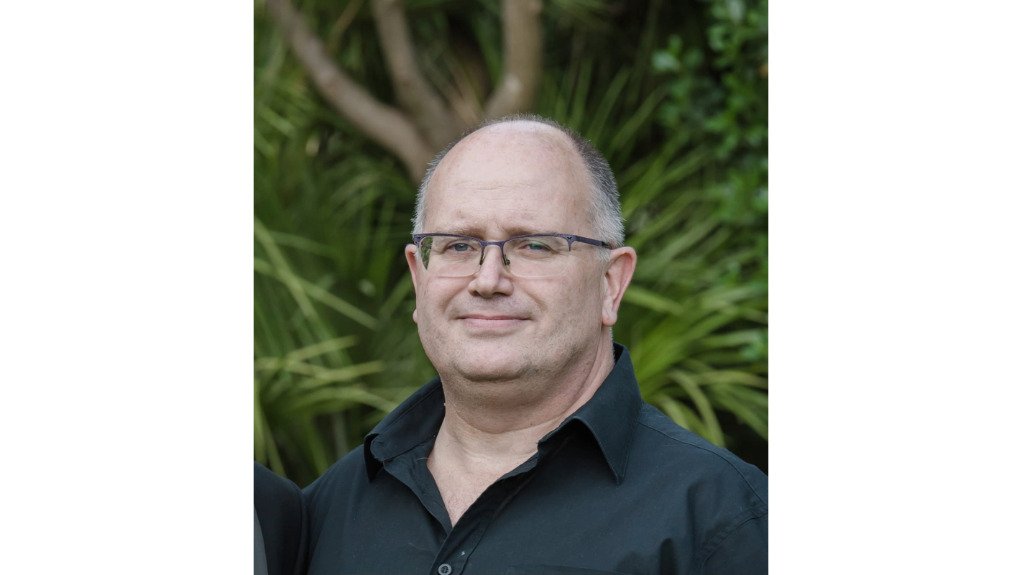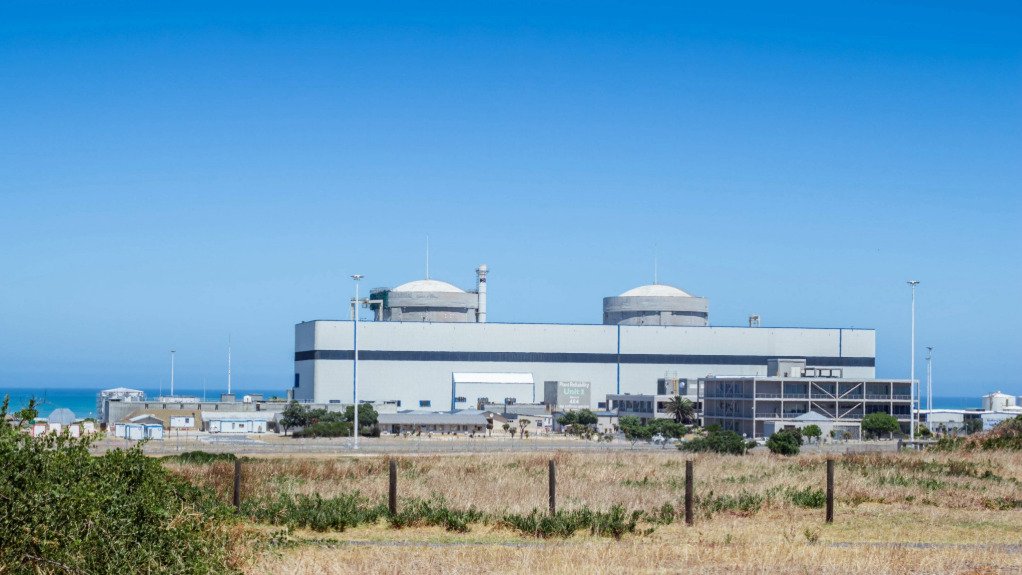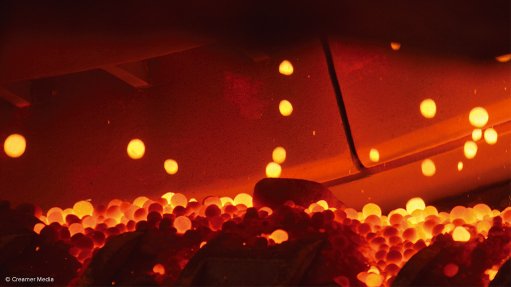SAIW to open Nuclear School of Excellence



HAROLD JANSEN There is a need to nurture, train and mentor the youngsters of today to become the nuclear experts of tomorrow
SECTOR DEVELOPMENT The Nuclear School of Excellence will allow its trainees to expand on their basic sciences foundation in an engineering environment
Nonprofit technical organisation the Southern African Institute of Welding (SAIW) personnel and certification manager Harold Jansen lauds the development of a Nuclear School of Excellence, facilitated by the Department of Electricity and Energy.
This school will be established by State-owned nuclear energy company South Africa Nuclear Energy Corporation’s (Necsa’s) Learning Academy in collaboration with the SAIW. The Nuclear School of Excellence is being established with funding provided by the International Atomic Energy Agency (IAEA).
The school is scheduled to start operations in the first half of 2025 and will offer a range of specialised courses focusing on welding and nondestructive testing (NDT) in the nuclear sector, comprising areas such as nuclear safety and precision measurement.
Jansen says competencies and skills integral to phased array ultrasonic (PAUT) testing, time of flight diffraction (ToFD), digital radiography and tube inspections might have “found the perfect platform for training, development, design and verification”.
The specific skills and competencies that the SAIW and Necsa collaboration will focus on to enhance nuclear safety and operational efficiency in Africa are under discussion, but the school intends to provide technical consultation for the industry, especially in areas in which technical skills are lacking.
At least four countries – including South Africa – are working on the introduction or expansion of nuclear power generation over the next 50 years to address growing energy demand and leverage the advantages of nuclear power generation, he points out.
Consequently, by initiating a Nuclear School of Excellence, individuals can gain expertise and competence in the nuclear environment on operating plants as well as the planned, new build projects.
“We need to nurture, train and mentor the youngsters of today to become the nuclear experts of tomorrow, and the time is right for the ‘trialled and tested’ expertise to be transferred to the younger generation,” Jansen stresses.
The focus should not only be on the transfer of knowledge and skills but also on the “nuclear way of thinking and evaluating”, as the latter needs to be transferred and developed.
He adds that current Grade 12 learners will most likely be responsible for the construction, commissioning and maintenance of the anticipated African nuclear fleet of the future.
As such, there is a “unique window of opportunity” for South African Qualifications Certification Committee nuclear inspectors and nuclear NDT practitioners to obtain the relevant qualifications relating to ultrasonic, radiographic and electromagnetic testing.
This will allow trainees to expand upon their sound foundation in the basic sciences – such as physics and chemistry, combined with mathematical principles – within an engineering environment, which will create the “perfect” mentoring environment, while further developing this crucial African sector.
Jansen believes that relying on imported
expertise or using foreign service providers diminishes the national ownership of nuclear facilities while adding unnecessary costs to manufacturing, construction and maintenance projects.
He also emphasises that “Africa has the people, knowledge, skills and potential to harness this Nuclear School of Excellence to serve as the birthplace of technical leaders”.
Promoting Gender Equality
In accordance with the fifth UN Sustainable Development Goal, Gender Equality, the IAEA is ensuring that gender parity in the industry is being taken into account, with strong support from the SAIW as the regional designation centre for NDT in Anglophone Africa.
“The need for PAUT and ToFD technicians, combined with the low numbers of females operating in the NDT field, has made this [ambition] viable whereby ISO 9712 ultrasonic certified technicians will obtain sufficient industrial experience,” explains Jansen.
He adds that these technicians will be granted the opportunity to attend a ten-week long specialised workshop presented by chartered engineers, who were actively involved in developing these techniques “from day one”.
The successful completion of the training course and related qualification examinations, combined with the relevant industrial experience, will culminate in PAUT and ToFD Level 2 certification, at no cost to the students.
The project will comprise two intakes: one in 2024 and another in 2025. Ten places will be allocated to women, with the minimum access requirements being an ISO 9712 Ultrasonic Testing Level 2 Certificate, with suitable industrial experience.
SAIW’s intention is to expand this collaboration beyond 2025 and to include males, but for now the focus will be on female NDT personnel.
The ten women comprising the 2024 intake have been chosen and will be informed shortly.
The participants will be required to attend a ten-week workshop that includes training, examination and certification, once the relevant industrial experience has been acquired.
Jansen explains that this has become one of the most significant NDT sponsorships in recent years with the IAEA continuing its development role within NDT on the African continent.
As such, in its endeavour to promote the peaceful application of nuclear technologies, the IAEA has “in one way or another”, been involved in establishing the current leaders within the African NDT industry.
“Investing almost R200 000 per student emphasises the IAEA’s commitment to the development of NDT leaders on the African continent and builds on the respected legacy that has changed numerous Africans lives forever,” concludes Jansen.
Article Enquiry
Email Article
Save Article
Feedback
To advertise email advertising@creamermedia.co.za or click here
Press Office
Announcements
What's On
Subscribe to improve your user experience...
Option 1 (equivalent of R125 a month):
Receive a weekly copy of Creamer Media's Engineering News & Mining Weekly magazine
(print copy for those in South Africa and e-magazine for those outside of South Africa)
Receive daily email newsletters
Access to full search results
Access archive of magazine back copies
Access to Projects in Progress
Access to ONE Research Report of your choice in PDF format
Option 2 (equivalent of R375 a month):
All benefits from Option 1
PLUS
Access to Creamer Media's Research Channel Africa for ALL Research Reports, in PDF format, on various industrial and mining sectors
including Electricity; Water; Energy Transition; Hydrogen; Roads, Rail and Ports; Coal; Gold; Platinum; Battery Metals; etc.
Already a subscriber?
Forgotten your password?
Receive weekly copy of Creamer Media's Engineering News & Mining Weekly magazine (print copy for those in South Africa and e-magazine for those outside of South Africa)
➕
Recieve daily email newsletters
➕
Access to full search results
➕
Access archive of magazine back copies
➕
Access to Projects in Progress
➕
Access to ONE Research Report of your choice in PDF format
RESEARCH CHANNEL AFRICA
R4500 (equivalent of R375 a month)
SUBSCRIBEAll benefits from Option 1
➕
Access to Creamer Media's Research Channel Africa for ALL Research Reports on various industrial and mining sectors, in PDF format, including on:
Electricity
➕
Water
➕
Energy Transition
➕
Hydrogen
➕
Roads, Rail and Ports
➕
Coal
➕
Gold
➕
Platinum
➕
Battery Metals
➕
etc.
Receive all benefits from Option 1 or Option 2 delivered to numerous people at your company
➕
Multiple User names and Passwords for simultaneous log-ins
➕
Intranet integration access to all in your organisation


















